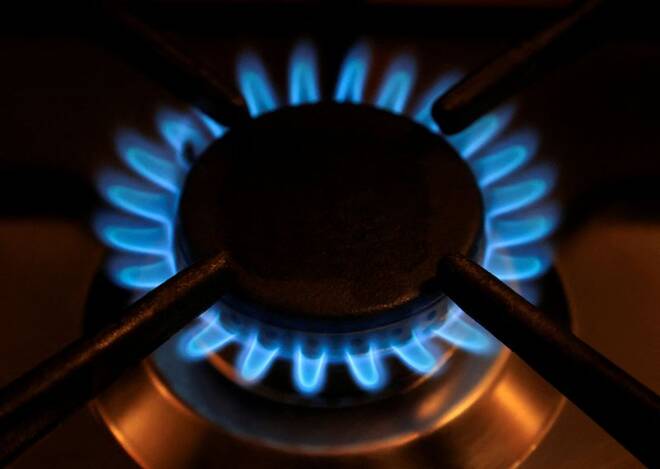Advertisement
Advertisement
Germany announces steps to boost gas storage as Russia cuts supply
By:
By Christoph Steitz and Andreas Rinke FRANKFURT (Reuters) - Germany on Sunday announced its latest steps to boost gas storage levels to prepare for the next winter season, when it fears Russia, which has cut deliveries in recent days, could reduce or even completely halt supplies.
By Christoph Steitz and Andreas Rinke
FRANKFURT (Reuters) – Germany on Sunday announced its latest steps to boost gas storage levels to prepare for the next winter season, when it fears Russia, which has cut deliveries in recent days, could reduce or even completely halt supplies.
Following Russia’s invasion of Ukraine, Germany, which relies on Moscow for most of its gas, is seeking to fill its gas storage facilities and to phase out Russian energy imports.
Germany’s Economy Ministry said the new measures would include increased reliance on coal-fired power plants as well as an auction system starting in the coming weeks to incentivise industry to consume less.
It also includes 15 billion euros ($15.8 billion) in credit lines for Germany’s gas market operator, via state lender KfW, to fill gas storage facilities faster, a government source said, asking not to be named.
Economy Minister Robert Habeck said that depending on the situation, the ministry, which is in charge of security of energy supply in Europe’s top economy, will take further measures.
Two people familiar with the matter, speaking on condition of anonymity, said that could include launching the second phase under Germany’s gas emergency plan.
The second phase, which kicks in when there is a high risk of long-term supply shortages of gas, would enable utilities to pass on high gas prices to customers and thereby help lower demand.
Germany’s chemicals industry association VCI, which represents the sector most exposed to the gas delivery cuts, said reduced supplies had not yet caused acute problems.
Painful but necessary
The measures announced on Sunday follow a package unveiled earlier this year to provide Germany’s energy companies and economy with support payments to manage the Ukraine crisis, which has led to soaring power costs.
“The tense situation and the high prices are a direct consequence of (Russian President Vladimir) Putin’s war of aggression on Ukraine,” Habeck said in a statement.
“What’s more, it is obviously Putin’s strategy to make us insecure, to drive up prices, and to divide us. We will not let that happen. We will fight back decisively, precisely and thoughtfully.”
The Economy Ministry said bringing back coal-fired power plants into the mix could add up to 10 gigawatts of capacity in case of a critical gas supply situation, adding a corresponding law would go to the upper house of parliament on July 8.
“That is painful, but it is a sheer necessity in this situation to reduce gas consumption,” said Habeck, a member of the Green party that has pushed for a faster exit from carbon-intensive coal.
“But if we don’t do it, then we run the risk that the storage facilities will not be full enough at the end of the year towards the winter season. And then we are blackmailable on a political level.”
Germany targets storage levels of 80% by October and 90% by November.
Data from Gas Infrastructure Europe shows German gas storage levels at 57.03% as of June 17, up from 29.69% on Feb. 24, the day Russia invaded Ukraine.
($1 = 0.9526 euros)
(Reporting by Christoph Steitz and Andreas Rinke; editing by Barbara Lewis)
Related Articles
About the Author
Reuterscontributor
Reuters, the news and media division of Thomson Reuters, is the world’s largest international multimedia news provider reaching more than one billion people every day. Reuters provides trusted business, financial, national, and international news to professionals via Thomson Reuters desktops, the world's media organizations, and directly to consumers at Reuters.com and via Reuters TV. Learn more about Thomson Reuters products:
Did you find this article useful?
Latest news and analysis
Advertisement
